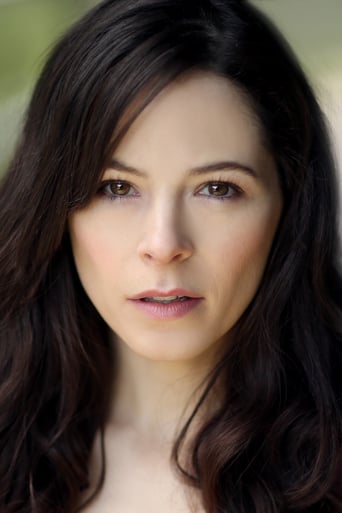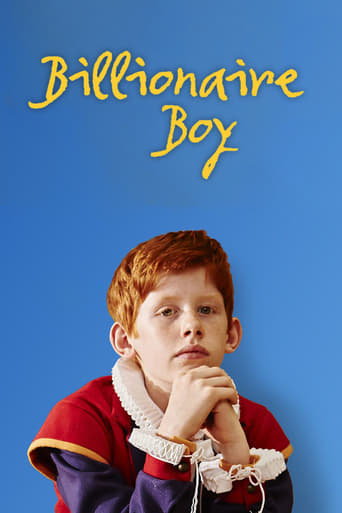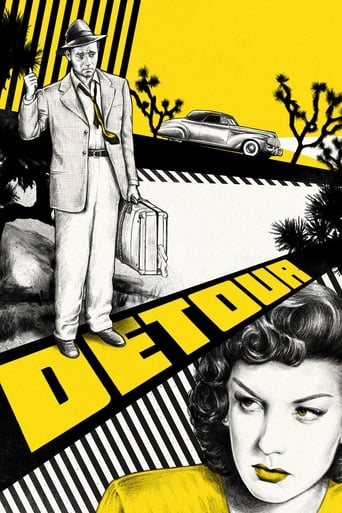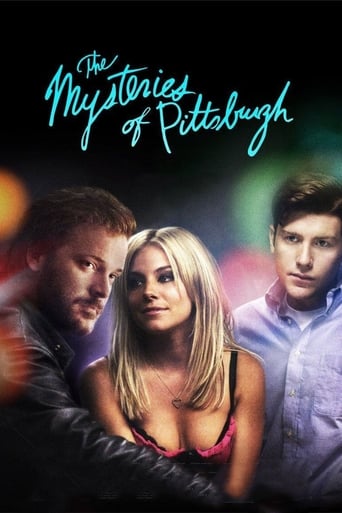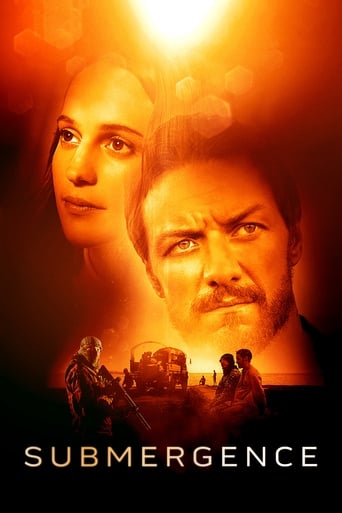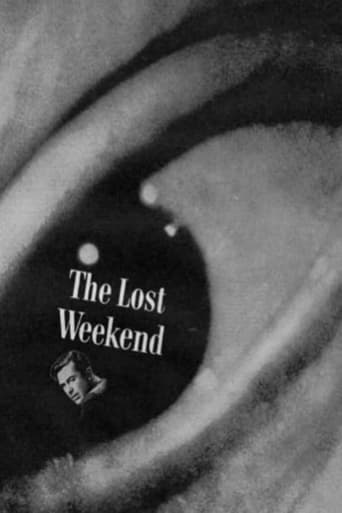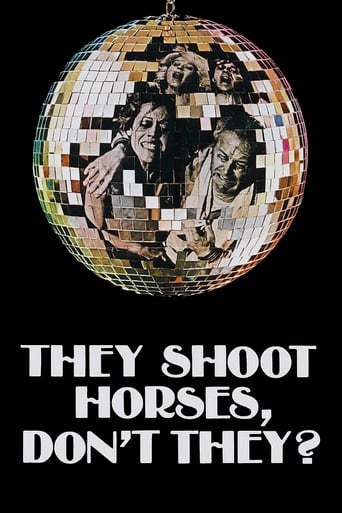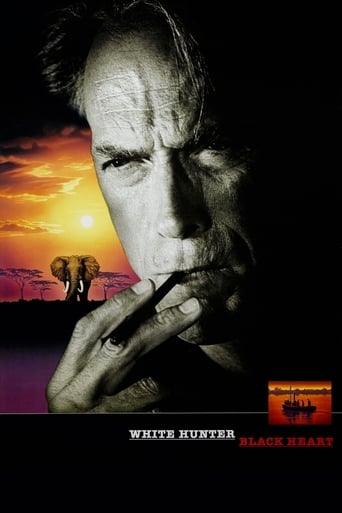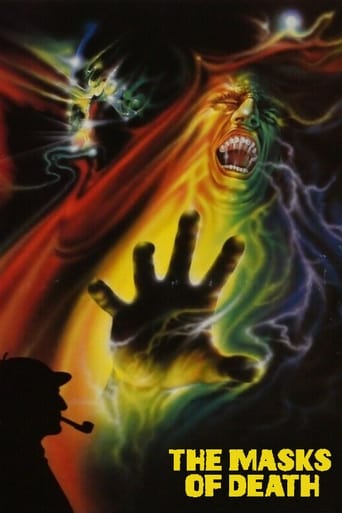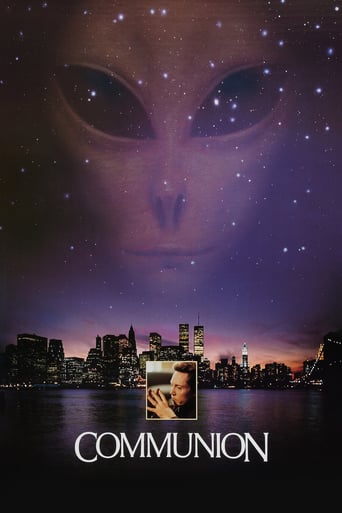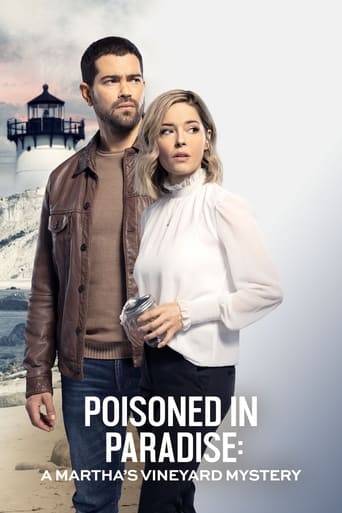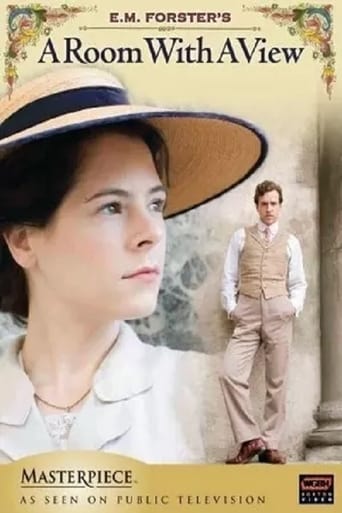

A Room with a View (2007)
Lucy Honeychurch and her nervous chaperone embark on a grand tour of Italy. Alongside sweeping landscapes, Lucy encounters a suspect group of characters — socialist Mr. Emerson and his working-class son George, in particular — who both surprise and intrigue her. When piqued interest turns to potential romance, Lucy is whisked home to England, where her attention turns to Cecil Vyse. But now, with a well-developed appetite for adventure, will Lucy make the daring choice when it comes to love?
Watch Trailer
Cast


Similar titles
Reviews
Disappointing and unnecessary redo of the Forster tale. Elaine Cassidy doesn't come close to Helena Bonham Carter's charm and winsomeness and without that the whole enterprise is doomed from the start. The only actor to perform with any distinction is Sophie Thompson who makes a fine Cousin Charlotte, different from Maggie Smith but fun in her fluttery way. The other cast members, fine actors though they may be in other places, are adrift here dwarfed by the memory of classic performances. Even considered separately the production seems flat and airless with the scenes following one another but without a sense of cohesion. To top it all off the ending is disastrous. Really a one star affair, the second is for Sophie Thompson but she's not enough to save this wretched mess. Watch the far superior original instead!
At first I wasn't sure how I'd react to this remake because I used to think I enjoyed the original, but I was pleasantly surprised to find it much easier to follow the *story* and see the *characters* in this retelling. It was actually quite refreshing.I didn't realize until I saw this version that the 1985 film is so self-consciously stylistic that it ends up being too clever for its own good. In the original, the intonation by the actors is so stilted that the dialogue feels like a series of non sequiturs. Every shot screams, "Look! Look at this gorgeous cinematography!" There isn't much chemistry between the two romantic leads, Daniel Day Lewis reduces Cecil to a tedious cartoon character, and Denholm Elliott overdoes his accent. Julian Sands, though interesting, seems more like a brother from another planet than a thoughtful subversive. In the Merchant-Ivory version, the story and the characters get buried under a layer of heavily vaselined romanticism.Through this bittersweet remake, I finally saw the story and felt I better understood what Forster was trying to say in his book. You see the Emersons' working-class roots and how they stick out among the more genteel travelers in Florence. You get to really see Cecil as a good but flawed human being. And, most importantly, you see Lucy as a sweet but unsure girl growing into a bright young woman in spite of herself.Director Renton keeps a light touch and doesn't spend any more time than is necessary on any part of the story. You see a dinner party, you hear a rough voice cut through the chatter, you see Charlotte put on the spot. That's the point of that scene, and it does its job with no extra fanfare. There is no inordinate amount of time spent on playing up some tennis game or skinnydipping episode. No one is allowed to chew the scenery.As a result, I felt moved by the passion between Lucy and George in a way that I didn't when watching the original. I felt the pain caused by their predicament. The scenes between Lucy and George were more emotionally charged, especially when Lucy has her epiphany. In the 1985 version, every scene between the two leads feels like little more than comic relief.And yes, I liked the ending in this version. It added gravity to the story and helped me feel the depth of Lucy's love for George. Kudos to Andrew Davies, Nicholas Renton, and especially to Rafe Spall and the beautiful Elaine Cassidy. They all did a brilliant job in bringing a terrific story to life. By the end of this version, I had forgotten all about the original and fell in love with these characters all over again.
Masterpiece Theater just aired a new production of the E.M. Forester novel. While this new take captures a little more of the class conflict inherent in the original novel and focuses on a few different scenes from the book, while cutting others, it loses all of the charm and humor of the novel, and the Merchant-Ivory film, as well as the thread of insufferable stuffiness of Lucy Honeychurch's life, from which George Emerson represents a happy escape.In addition to losing the core theme of the novel (Lucy's escape from her stuffy upper class prison-like future existence with Cecil) the writer has inexplicably decided to tack on a sad ending. Who knows why. Perhaps it's an anti-Hollywood move: give the original light and witty story a heavy-handed treatment complete with downer ending in the hopes of making the entire production more highbrow. Lest we forget, this is *Masterpiece* Theater and this is high drama, darn it, so you'd better get used to the pedestrian pacing too.And then there's the casting. None of the current cast members compare to the definitive 1985 version. Timothy Spall, as Mr. Emerson, has the right build but puts in a tepid performance. His real life son, Rafe, as George Emerson lacks the animal magnetism that Julian Sands had to woo Lucy away from her secure, but stuffy, upper class life. And Sophie Thompson's Miss Bartlett does more stammering than acting. But worst of all, Laurence Fox's Cecil Vyse looks like he would have fared better as George Emerson: while no one could ever equal Daniel Day-Lewis's up tight prig, Laurence Fox gives off a rough, unpredictable energy and seems more rebel than stuck up, elitist snob.I've never been very fond of the name Masterpiece Theater, since there are truly so few masterpieces. The build-up created by the show's presumptive name usually dooms the resultant films to fall short. The production qualities of this made-for-TV version make this retread just as doomed to mediocrity from the get go: the Merchant-Ivory film is itself a true masterpiece, lovingly put together and with a feature film budget and sensibilities. Anything after that will surely be a let-down, and it is.
James Ivory's screen version of "A Room with a View" has always been one of my favourite films, (I'm a hopeless romantic; now I'm out of the closet), so I approached this television version with some trepidation and for the first twenty minutes or so I was sure I was right; they should leave well enough alone. But then the power of the original novel began to exert itself. And so did the casting. I was never that happy with Helena Bonham-Carter and Julian Sands as the young lovers in the Ivory version, (she simpered; he was gorgeous in a big, dumb hunk kind of way but Sands was also a shade too upper-crust for a working class lad). Here Elaine Cassidy caught the rebellious spirit of Lucy from the off while Rafe Spall seemed to me to be authentically working-class while his real-life father Timothy was simply magnificent in the role of his screen father, Mr Emerson. Laurence Fox, too, was far more recognizably human and less of a caricature than Daniel Day-Lewis as Cecil Vyse. Best of all, in the crucial role of Miss Barlett, Sophie Thompson succeeded in banishing all memories of Maggie Smith and made the part her own. Thompson could now write an encyclopedic textbook on how to play nervous embarrassment. So the casting worked and the first hurdle of replicating a beloved original was overcome.But there were three other crucial differences between this version and Ivory's. Firstly the story is told in flashback as Lucy returns to Florence on her own in 1922. Why is she alone? The clue, of course, is in the year and the ending makes explicit what we may have already guessed. Secondly there is a coda, very nicely done, that seems to set out a happy future for her and thirdly, perhaps you may think unnecessarily, scriptwriter Andrew Davies introduces a sub-text that implies that both Cecil and Mr Beebe, the kindly, match-making vicar played camply by Simon Callow in the Ivory version and by Mark Williams in a much more restrained way here, are gay. Blink and you may well miss the inference and may wonder exactly what Mr Beebe is referring to when later he says that Cecil is not the marrying kind. It is, of course, only one reading into the behaviour of both these characters but it certainly goes some way to explaining the character of Beebe, if not always Cecil. And it ensures that this adaptation is not simply a slavish copy of the James Ivory version.Did I prefer it to Ivory's version? Well, not exactly but it held me in its velvet glove of a grip right to the end and finally it moved in a really quite unexpected fashion.


